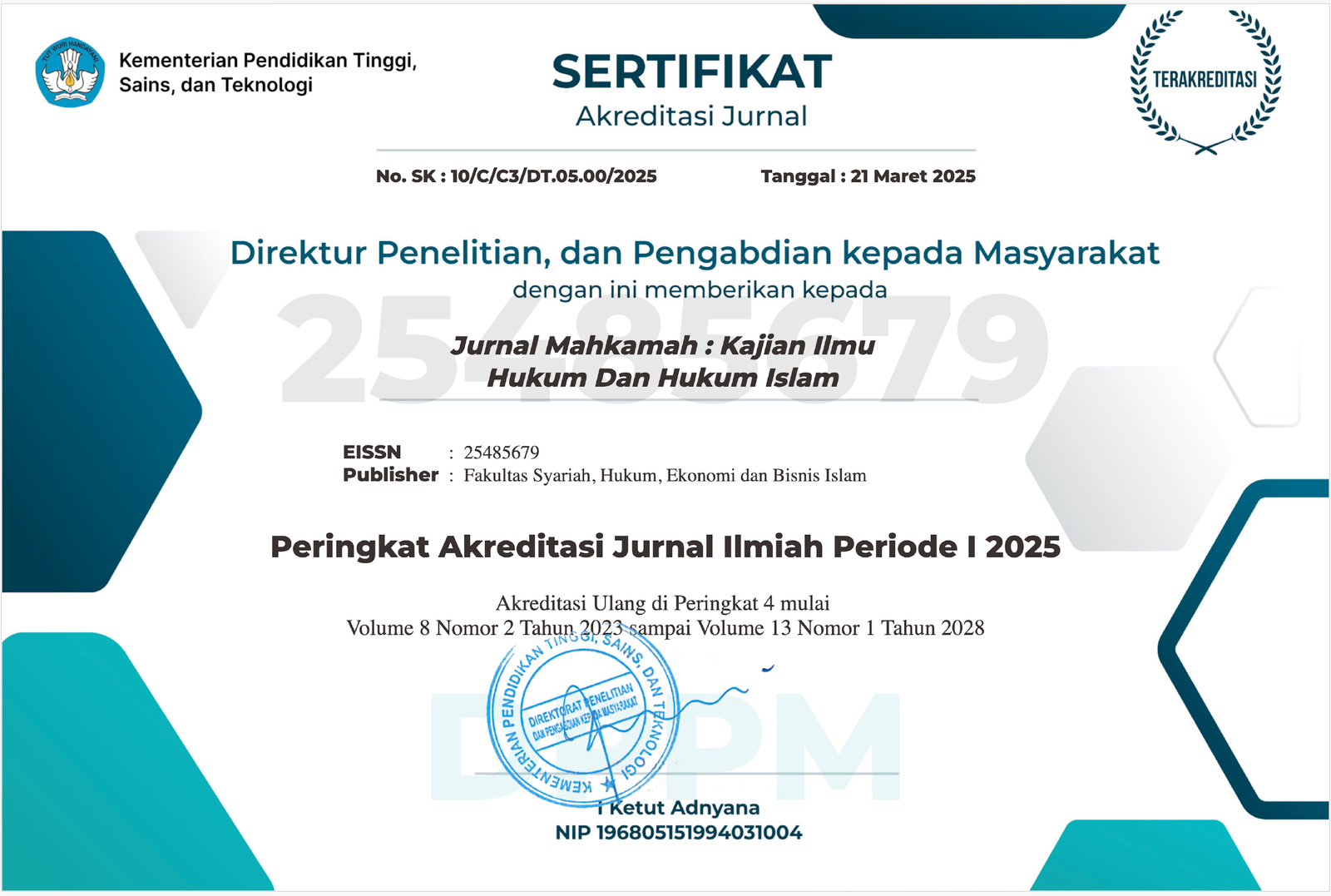Kursus Calon Pengantin (SUSCATIN) Dalam Membina Keharmonisan Rumah Tangga Di Kecamatan Metro Timur
DOI:
https://doi.org/10.25217/jm.v3i2.396Keywords:
Courses, Prospective Brides, Harmonious FamiliesAbstract
Marriage is a sunnatullah that applies to all creatures of God, both humans, animals, and plants. Islam views that quality marriage will be measured from the process of pre, right, and post marriage. How someone starts the process of looking for a prospective wife or husband until the marriage contract and post-marriage will have offspring, all of which are clad in a clear Shari'a. So that the hope when having children, is that children who are pious and pious, can provide benefits to the people. Based on this matter, the Ministry of Religion took the initiative to implement the Candidate Candidate Course program in accordance with the government regulations that had been made.This research is a type of field research. The nature of this research is qualitative descriptive. In this study data collection methods used were observation, interview and documentation. In analyzing data, researchers used an inductive approach.The results of the study explained that what is meant by pre-marriage debriefing is the process of transforming behavior and attitudes in groups or the smallest social unit in society towards prospective brides. Quality marriage is a condition where marriage can produce happiness, conformity and stability of marriage. While the level of quality of marriage itself is influenced by factors such as optimal family composition, family life cycle, socio-economic feasibility and suitability of roles, social and personal resource factors of husband and wife even by premarital conditions. That the sakinah family is a family that all family members feel love, security, peace, protection, happiness, blessing, respect, respect, trust and blessed by Allah SWT.
References
Al-jamaah, Muhmmad bin Ali., 2013. Hadits-Hadits Pilihan Seputar Agama dan Akhlak, Indonesia: IslamHouse.com.
Arikunto, Suharsimi., 2010. Prosedur Penelitian, Suatu Pendekatan Praktik, Jakarta: Rineka Cipta.
Baqi, Muhammad Fu’ad Abdul., 2005. Bukhari Muslim, Surabaya, Bina Ilmu.
Chamidi, Ya’qub., 2011. Menjadi Wanita Shalihah & Mempesona, no place, Mitrapress.
Departemen Agama RI, 2006. Al-Qur’an dan Terjemahnya, Bandung: Diponegoro.
Departemen Agama, 2003. Membina Keluarga Sakinah, Jakarta: Dirjen BMI dan PUH.
Departemen Agama, 2004. Pedoman Pembantu Pegawai Pencatat Nikah, Jakarta: Dirjen Bimas Islam da Penyelenggara Haji.
Dirjen Bimas Islam dan Penyelenggaraan Haji Kementerian Agama, 2003. Buku Pegangan Calon Pengantin, Jakarta: Dirjen Bimas Islam dan Penyelenggaraan Haji Kementerian Agama.
Ghazali, Imam., 1995. Perkawinan Sakinah, Alih Bahasa Ny. Kholila Marhijanto, Surabaya: Tiga Dua.
Keputusan Dirjen Bimas Islam dan Urusan Haji Kementerian Agama RI, Nomor D/71/1999.
Margono, S., 2010. Metodologi Penelitian Pendidikan, Jakarta: Rineka Cipta.
Moleong, Lexy J., 2012. Metodologi Penelitian Kualitatif, ed. rev, Bandung: Remaja Rosdakarya Offset.
Mudyahardjo, Redja., 2006. Filsafat Ilmu Pendidikan, Bandung: Rosda Karya.
Sahrodi, Jamil., dkk. 2005. Membedah Nalar Pendidikan Islam, Pengantar kearah Ilmu Pendidikan Islam, Cirebon: Pustaka Rihlah Group.
Sarwono, Sarlito Wirawan, et. al., 1996. Apa & Bagaimana Mengatasi Problema Keluarga, Jakarta; Pustaka Antara.
Sugiyono, 2011. Metode Penelitian Kuantitatif Kualitatif dan R&D, Bandung: Alfabeta.
Sujana, HD. 2004. Pendidikan Nonformal, Wawasan Sejarah Perkembangan Filsafat Teori Pendukung Asas, Bandung: Falah Production.
Suprijanto, 2007. Pendidikan Orang Dewasa dari Teori hingga Aplikasi, Jakarta: Bumi Aksara.
Downloads
Published
How to Cite
Issue
Section
License
This work is licensed under a Creative Commons Attribution-ShareAlike 4.0 International License.
Authors retain copyright and grant the Jurnal Mahkamah : Kajian Ilmu Hukum Dan Hukum Islam right of first publication with the work simultaneously licensed under a Creative Commons Attribution License (CC BY-SA 4.0) that allows others to share (copy and redistribute the material in any medium or format) and adapt (remix, transform, and build upon the material) the work for any purpose, even commercially with an acknowledgment of the work's authorship and initial publication in Jurnal Mahkamah : Kajian Ilmu Hukum Dan Hukum Islam.
Authors are able to enter into separate, additional contractual arrangements for the non-exclusive distribution of the journal's published version of the work (e.g., post it to an institutional repository or publish it in a book), with an acknowledgment of its initial publication in Jurnal Mahkamah : Kajian Ilmu Hukum Dan Hukum Islam.
Authors are permitted and encouraged to post their work online (e.g., in institutional repositories or on their website) prior to and during the submission process, as it can lead to productive exchanges, as well as earlier and greater citation of published work (See The Effect of Open Access).









